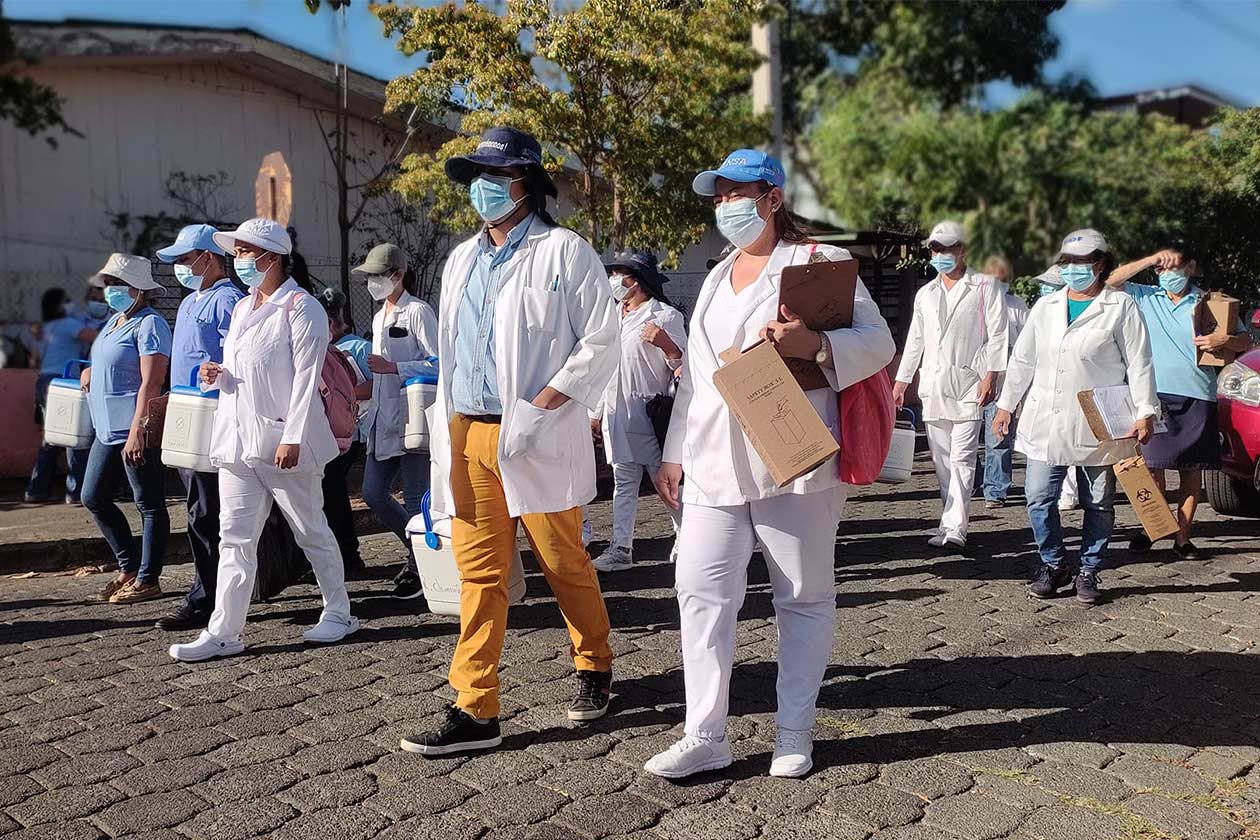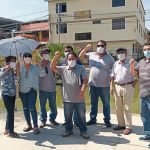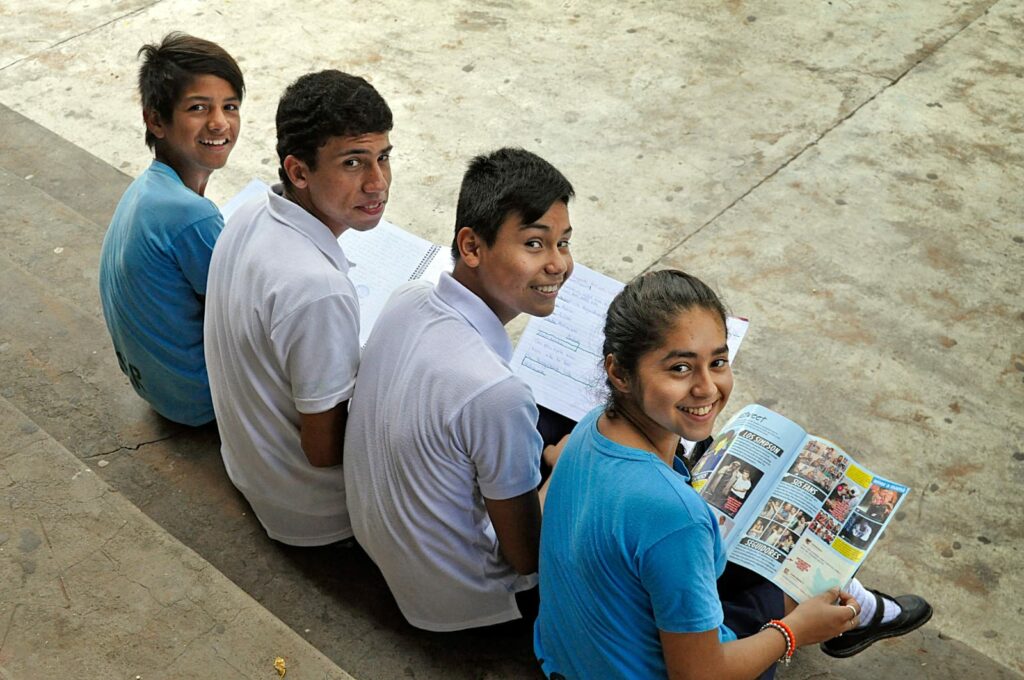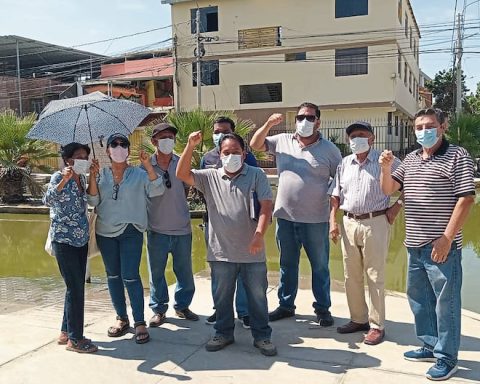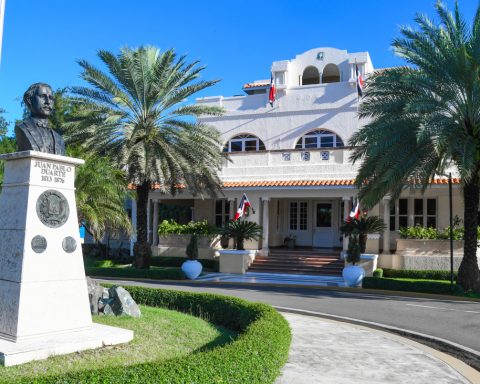A mission from the International Monetary Fund (IMF), which visited Nicaragua between November 7 and 15, indicated in a statement a series of reasons (most of them external), for which the fall of the national economy was stopped, and started to the recovery period observed from 2021. It was also announced that in November, the Government will publish external audit reports on the use of covid-19 funds.
When presenting their recommendations on fiscal transparency, the Fund’s experts announce the government’s commitment “to publish external audit reports on the use of all funds covid-19”. A first publication with data cut to May 2021, should see the light at the end of this month, although so far, the regime has resisted honoring its previous transparency commitments on this and other topics.
By pointing out the risks for our economy in the following years, the experts tell the Government to maintain its “prudent” policies and the decisions that allowed it to get off the FATF “grey list”. In addition, maintain the measures that guarantee the health of the banking system; and lists the decisions that the Comptroller General of the Republic (CGR) supposedly implemented to fulfill its supervisory role.
Based on Article Four of its Constitutive Pact, a mission from the Fund visits the countries each year to assess the most important aspects of their macro situation. The group of experts, this year led by Alina Carare, held virtual meetings on November 3 and 4. In Managua, he met with the Minister of Finance, Iván Acosta; the president of the Central Bank, Ovidio Reyes, and “senior officials and representatives of the private sector, banks and the international community,” said the financial entity.
By assuring that GDP grew 10.3% in 2021, and is expected to grow 4% in 2022, the Fund details that this is due to private consumption, to the high prices of our export products; to the growth of remittancesof foreign direct investment, since the allocation of Special Drawing Rights (SDRs) in August 2021.
All of this made it possible to accumulate gross international reserves of some US$ 4.2 billion (about six months of imports, excluding maquila), by the end of September 2022. Similarly, they point out how, despite measures to mitigate the impact Due to the increase in the prices of oil, wheat and fertilizers, inflation reached 12% in October 2022, driven mainly by import prices.
Private businessmen have denounced CONFIDENTIALthat the regime maneuvered in the General Directorate of Customs Services, to keep fertilizer taxes highwhich prevents the price of that raw material from falling.
They recommend Ortega to continue being “prudent”
Looking to the near future, the Fund’s experts expect GDP growth to be 3% in 2023, “due to weaker external demand and more restrictive external financial conditions”, and that in the medium term, “the growth of the Real GDP converges to its potential of around 3.5%, given the cautious recovery of investment and credit to the private sector, and lower participation in the labor force.
Additionally, they warn that a more severe world recession, a greater external tightening of monetary conditions, and higher than expected import prices, “could result in a lower real GDP and lower growth in remittances; higher inflation; less access to food and greater fiscal deficit”.
Still, trying to ward off those possibilities, they recommend continuing with “prudent” monetary, fiscal, and financial policies, to “build resilience and achieve sustained growth in the medium term.”
According to the Fund, the Government is making efforts to “sustain growth in the medium term by investing in infrastructure, reducing energy costs and improving human capital”, an action that they support, recommending sustaining efforts to “improve the business climate”. and implement structural reforms to increase formal employment, which would help curb migration and strengthen social security accounts”.
In fact, the Administration of Daniel Ortega and Rosario Murillo has few incentives to curb migrationGiven that the continuous departure of Nicaraguans decreases unemployment in the country, it works as an escape valve for the pressures of a society dissatisfied with its government model and, even more importantly, represents an unparalleled increase in remittances, which this year they could overcome the USD 3 billion barrier.
Experts from the multilateral entity warn that fiscal balances, economic activity and social results “could be affected by natural disasters, given the Nicaragua’s high exposure to climate change and economic dependence on climate-sensitive sectors”, but also that “a deterioration of the business climate and stricter international sanctionswould affect trade and financial flows.”
The IMF also hopes that fiscal policy will help reduce public debt, which is around 57% of GDP; supports efforts to address structural imbalances in state-owned companies and improve social insurance accounts; It calls for remembering vulnerability to natural disasters, and preventing greater rigidity in global financial conditions, recommending better targeting of subsidies and reallocating current spending to “maintain levels of social spending, reduce poverty and support growth.”
Banks and the Comptroller’s Office
In reference to local banks, they indicate that although these “are well capitalized and liquid”, their resistance could be further strengthened. While bank deposits in córdobas grow – to the point that they already exceed pre-crisis levels – credit to the private sector is picking up, but “it remains below pre-crisis levels.”
The data also shows that “non-performing loans have halved in the last two years” (1.9% in September 2022) and that the level of distressed assets (referring to non-performing, foreclosed, restructured and refinanced loans , as well as seized assets) continues to decrease but is still significant: 12.1% in September 2022.
For all this, they recommend “increasing the level of provisions for distressed assets”, and highlight the need to guarantee that solid credit practices are maintained, applying the best international practices, expanding the prudential supervision perimeter to overcome “data gaps”. savings and credit cooperatives, prioritizing the largest, in addition to continuing to monitor exchange risk, given the high degree of dollarization.
Always in financial matters, remember that the “Comprehensive set of legal reforms” that the country implemented to align the national legal framework with international standards to combat money laundering and terrorist financing, allowed the FATF to exclude us from its “grey list”, recommending the proper application of that legal framework.
In reference to the Comptroller General of the Republic (CGR), they say that it “has taken measures to strengthen the supervision of the use of public funds, [pero] further efforts are needed to ensure risk-based audits and the publication of audit reports.”
Without specifying which ones it refers to, the IMF report ensures that “the State has taken measures to improve governance and the fight against corruption, but more efforts are needed to strengthen these frameworks and their effective application.”
Then, they add that the CGR “introduced a platform to collect asset declarations from public officials,” and they recommend that it ensure that the public has access to these declarations, that it publish them digitally, and that it prioritize reviews by politically exposed persons.
Finally, remember that improve the business climate and grow more, it is necessary to “strengthen the capacity of detect and prosecute possible acts of corruption at all levels of government”; fulfill the Law on Access to Public Information; guarantee the protection of whistleblowers, as well as impartiality and access to justice; and respect property rights, enforce contracts and investment protection.
